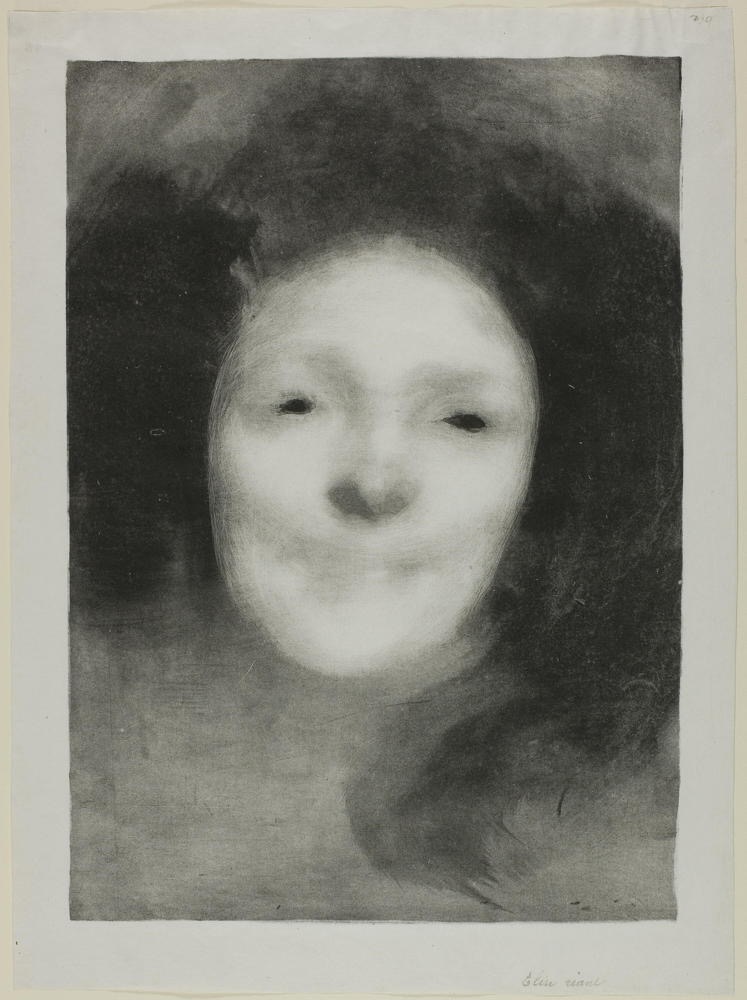Elites

Eugène Carrière: Elise Smiling (1895)
"…they always seem to disappoint us and themselves in practice."
Some hold a belief in the absolute necessity of maintaining an Elite class in a society. History provides strong evidence against this belief. The story insists that Elites set the standards others follow and sustain society’s highest ground, enabling “regular” people to attend to lesser interests. This notion contradicts the first principle upon which this country was founded: the notion that all people are created equal. The historical record reveals many examples of Elites who, rather than serving their publics, merely served themselves. Crowned heads more often abused their power than wisely deployed it. Of all the awful notions humans have spawned, the notion of the necessity of superiority might have proven to be the worst. Yet, we still worship leaders and imagine them somehow superhumanly capable when, much more often, they’ve proven to possess feet of the most fragile clay.
Our country was founded partly to address the paradoxes that Plutocracy inevitably produces. Rule by the wealthiest insults the majority, as those inexperienced in everyman’s struggles fail to imagine and ameliorate their troubles. “Let them eat cake!” They provide solutions that often exacerbate the problem or benefit only themselves. I suppose the originating ideal imagined that yeoman farmers would be elected rulers, as they would be the sorts of people with whom almost everyone could most easily relate. They might lead with humility rather than hubris and might best understand the concepts of liberty and justice for all. The wealthy might serve as cabinet secretaries under the direction of more experienced persons. Of course, these ideals quickly succumbed to the ministrations of professional politicians who seemed destined to become Elites themselves. E Pluribus Electi: out of many, only a few are chosen.
The great myth that Elites are necessary to the smooth functioning of our society continues, apparently undaunted by the volumes of contrary evidence. We see our billionaires make the most ridiculous errors, yet we still seem to revere them as fonts of wisdom. We watch them fail to imagine what people want, producing what they imagine they should want instead, yet we still turn our heads to listen whenever they mumble something. On social media, Elites have the most followers; in fact, many Elites became Elites on nothing more tangible than their number of followers. Those followers might feel a part of the Elites by dint of their distant association in the role of follower: self-selected second-class citizens.
The concept of a representative government seems imperiled by the presence of such dominant Elites among us. Especially if the Elites receive the consent of their followers, who once reserved their consent for their duly elected candidates. We now have trend-makers trailed by trend followers, rather than public servants collaborating with empowered citizens. The moneyed Elites take first guesses. They lobby for support from the electeds without necessarily considering the needs and wishes of the vast majority of the governed. Money was never speech, free or otherwise, but an undermining scream incapable of representing everyday needs. It doesn’t depend upon any social good to determine what it should support. It can only be self-serving until the ayes no longer hold together society, but the me-s insistently tear it apart.
I accept that we might need to explore every possible variation in our pursuit of an ever more perfect nation. Lord knows, if there ever was a Lord, that we’ve tried on some real stinkers. Our present experiment should cement certain understandings. It should do enough to discredit Elites to protect us from the worst of them for another hundred years or so, at least until the sharp recollections of this disturbing time have left us. Let the histories of this time show that Elites proved themselves incapable of governing again, like they did every previous time. And may the immature notion that our past greatness might somehow qualify as a noble objective in our future stop haunting us again. All of our prior greatnesses came before some fall, often prompted by the very pursuit we imagined might produce another imagined greatness. We reduced ourselves whenever we relied upon Elites to guide us. We not only reduce ourselves, but we apparently reduce the Elites, too, since they always seem to disappoint us and themselves in practice.
©2025 by David A. Schmaltz - all rights reserved


